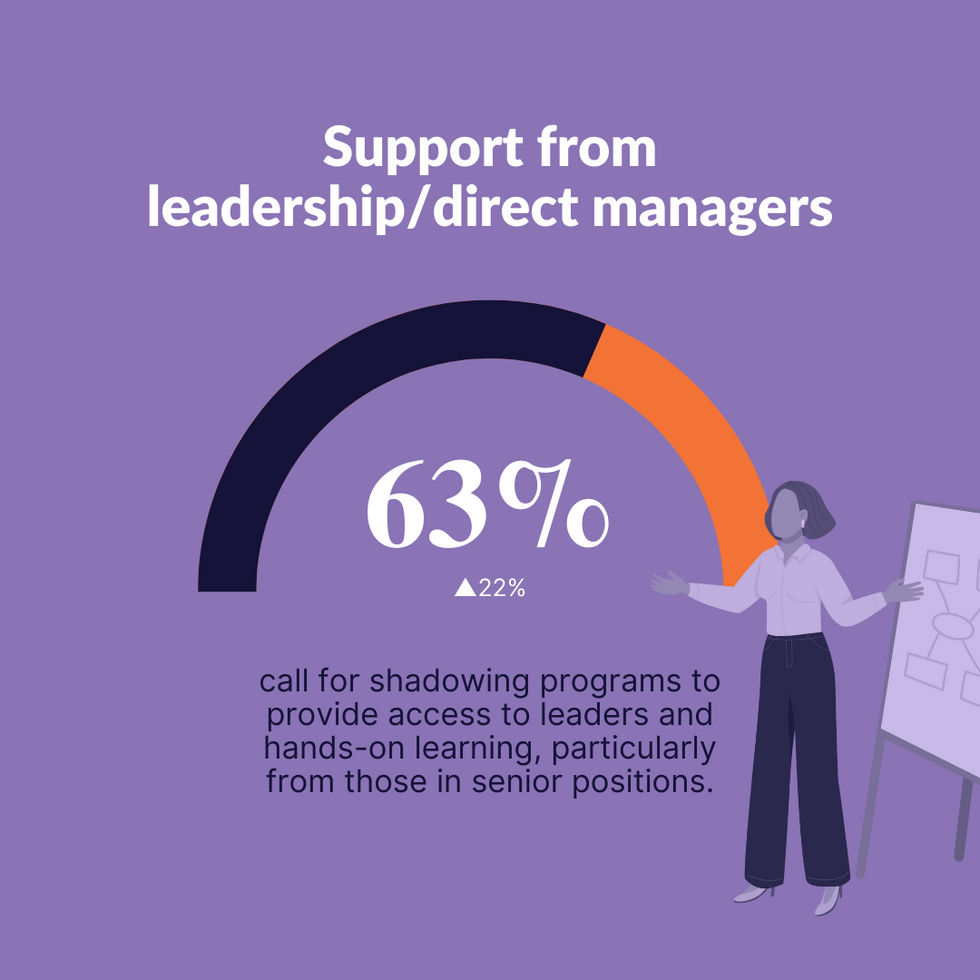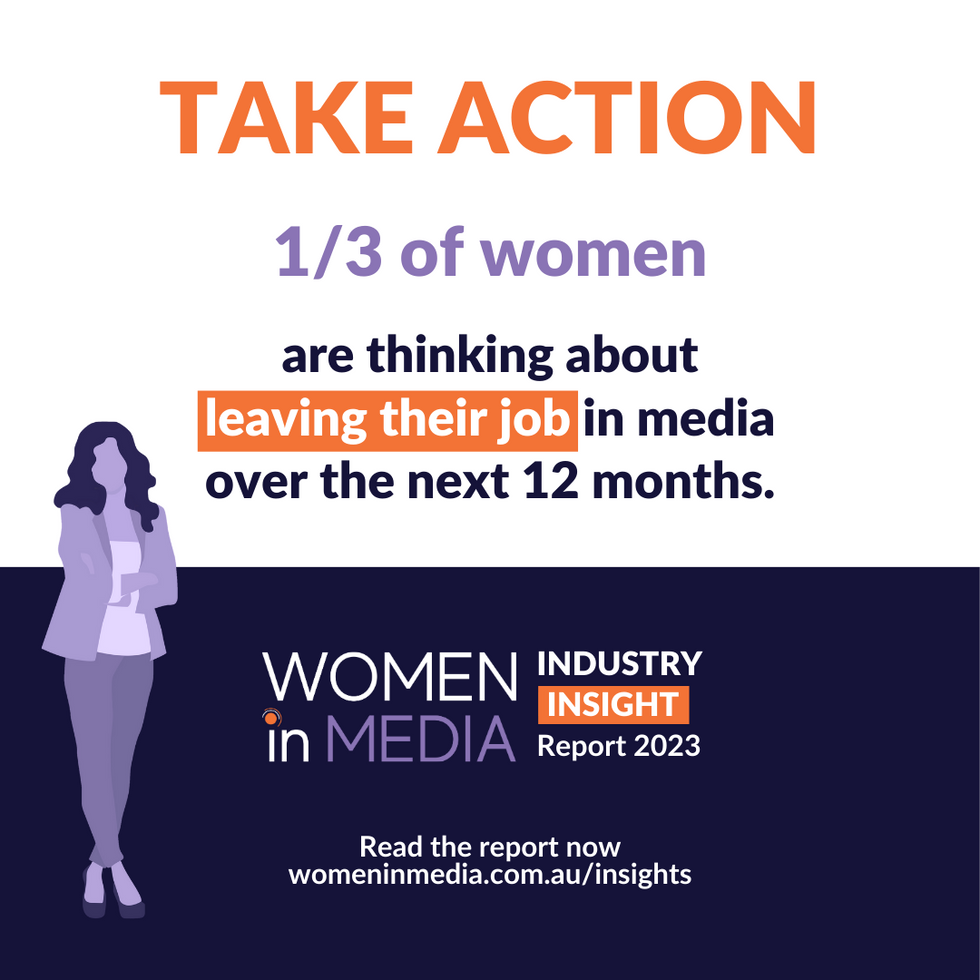Report shows barriers persist for women working in media
- Jul 17, 2023
- 3 min read
The majority of women in Australian media remain concerned about gender equality and a lack of industry support, citing increased bias and discrimination as a reason for career dissatisfaction. For the second year in a row, research data highlights a demand for greater transparency about pay and more access to leaders and hands-on learning.
The Women in Media Industry Insight Report 2023 released today shows that the majority of women (54%) continue to be either unsure or explicitly dissatisfied with the progress of their careers. Facing an industry pay gap above the national average*, nearly one-third of women are thinking about leaving their job, with nearly half of those in mid-career considering staying for no longer than 12 months. Among senior women, more are considering changing than keeping their current role.
Three times more women in 2023 than 2022 cited limited access to training/development and mental health/stress as obstacles to career progress. Dealing with bias/discrimination was five times more commonly cited as a factor for career stagnation year on year.
Women in Media Strategic Advisor Petra Buchanan says the survey puts a spotlight on employers and the media industry to act.
“We cannot ignore the consistent barriers faced by women in the media industry, as revealed by the Women in Media Industry Insight Report 2023. The findings highlight deep concerns about gender equality and a lack of industry support that continues to hinder women's career progress,” said Petra Buchanan.
“The statistics speak volumes - with an entrenched gender pay gap above the national average and increased bias and discrimination, nearly one-third of women are considering leaving their jobs in media. It's a critical moment for employers and the media industry to step up; the departure of women from media is a loss society cannot afford.”
The Report’s key findings highlight:
85% (▲1%) of respondents call for gender pay audits to be introduced to address the media industry’s entrenched higher than average pay gap.
63% (▲22%) call for shadowing programs to provide access to leaders and hands-on learning.
36% believe being engaged or challenged in a positive way is crucial to their career progress.
36% (▼4%) flag micro-learning to build digital skills.
54% (▼4%) continue to be unsure or explicitly dissatisfied with the progress of their careers.
More than one in two women rate the media industry’s commitment to gender equality as ‘weak/very weak’.
As a founding member of Women in Media in Western Australia and acting Co-Chair, Victoria Laurie notes that Women in Media offers essential support to women and the media industry to ensure both thrive.
“Women want to work in environments where they are active contributors, recognised for their achievements and able to progress in their careers. This Report shows continued dissatisfaction, especially at the middle stages of women’s careers, which needs to be addressed,” said Victoria Laurie.
“The data clearly pinpoints where effort can be made to better support women.”
Women in Media urges media employers to address the factors that impede women’s career pathways through the industry. In response to survey findings, WiM identifies four key steps that would assist women to feel more satisfied in their careers in media.
Industry commitment to actively address gender equality – employers should provide greater transparency about pay and actively engage with women about issues and opportunities within their workforce.
Pathways to promotion – clarifying career goals has become a more important factor in early rather than later career stages.
Support from leadership/direct managers – the survey identified a 22% increase in demand for access to leaders and hands-on learning such as ‘shadowing’ programs, particularly from women in senior positions.
Access to upskilling – women are seeking opportunities to upgrade digital skills and knowledge of podcasting & social media. One in six surveyed women are interested in developing knowledge about advertising – three times more women than in 2022.
Women in Media is calling on employers to provide increased transparency and engagement with females in their ranks, to retain them and progress their careers. We look forward to continued discussion about how we all can better support women working in Australian media.
*Australian Bureau of Statistics figures show that women on average make $255.30 less per week than men, a gap of 13.8%. However, in the information, media and communications industry, women face an above average weekly earnings gap of 16%.












